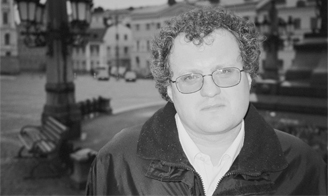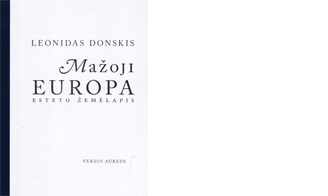Leonidas Donskis - MEMORY WARS IN THE CITY: UTOPIAS, EUTOPIAS AND DYSTOPIAS
WHAT CITY?
After 20th century social experiments, humanity lost their interest in utopias. Even an idea of just right and good society is mocked and considered to be part of a utopian fantasy. Today we are no longer dreaming about a good society or a just community; instead, we are dreaming about a good life of our own, about our individual happiness. Yet where is the city here? The city is the real origin of utopias and its derivatives - eutopias and dystopias. Paradoxically, the city is transforming itself from a symbolic place of thinking, aesthetic body, and the field of cultural memory into the battlefield of memory wars. This sort of transition as well as the city-books, or the new and small bibliopolises, are going to be discussed during the lecture.

Leonidas Donskis, Ph.D., (born August 13, 1962) is a former (2009-2014) Member of the European Parliament (MEP), a philosopher, political theorist, historian of ideas, social analyst, and political commentator, currently Vice-President for research at ISM University of Management and Economics.
As a public figure in Lithuania, he acted as a defender of human rights and civil liberties. In 2004, Donskis has been awarded by the European Commission the title of the Ambassador for Tolerance and Diversity in Lithuania. A center-right politician, he has always been opposed to all extreme or exclusionary attitudes and forms of violent politics, and, instead, has been leaning to liberalism with its advocacy of individual reason and conscience, ability to coexist with democratic programs of other non-exclusive ideologies, and moderation.

“The miracle of Europe was not born in the big cities, even though they were where the culture accumulated in the 19th and 20th century – in Berlin, New York, etc. Ulrich Beck called it the late modernity. However, the solid modernity, as Zygmunt Bauman describes it, is found in these small historical cultural cities. Harlem, Delft, Leiden had great openness, multilingualism, freedom and Republic ideals. Alst, Leuven and Mechelen had 20,000 to 40,000 people each, yet in their churches you can see works by Peter Paul Rubens and, in Bruges, by Michelangelo”, Donskis’ admiration to Dutch and Flemish cities showed through quickly.
http://www.vdu.lt/en/professor-leonidas-donskis-europe-is-open-space-of-understanding/
